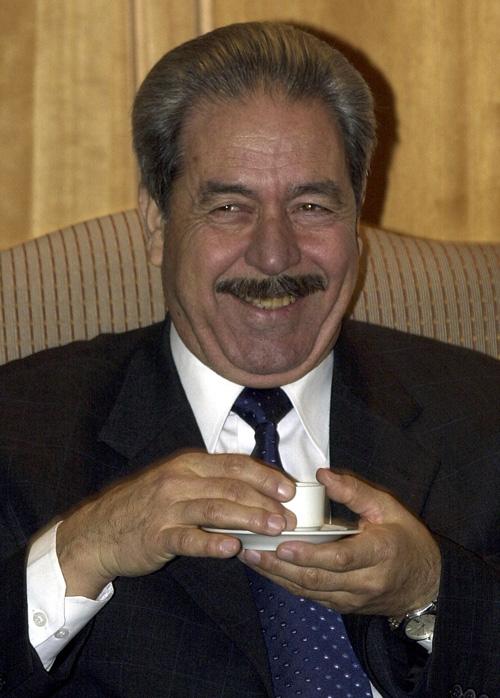Iraq debates fate of old regime leaders
Ali Hassan al-Majid, also known as “Chemical Ali,” is seen in this Jan. 20, 2003 file photo in Beirut, Lebanon. THE ASSOCIATED PRESS, ADNAN HAJJ ALI
October 19, 2007
BAGHDAD – Iraq’s leaders grappled Thursday over the death sentences for three former Saddam Hussein regime heavyweights – including the notorious enforcer known as “Chemical Ali” – amid warnings the hangings could enflame sectarian violence and derail efforts at reconciliation.
But any serious delays in carrying out the executions also risk backlash from the victims of Saddam’s attacks, including Kurds who faced a brutal crackdown in the 1980s that led to the death sentences.
The bind grew more difficult as Sunni leaders pressed to delay the hangings, saying they could incite violence and cripple already fragile bids to improve ties between Iraq’s rival groups.
A court last month upheld the genocide and war crimes convictions against the three former regime insiders for their roles in the “Operation Anfal” campaign against autonomy-seeking Kurds in the 1980s that claimed more than 100,000 lives.
Baghdad’s attacks – including the use of poison gas in the Kurdish town of Halabja – came to symbolize the cruelty of Saddam’s grip on power and brought the nickname “Chemical Ali” to one of the masterminds, Saddam’s cousin Ali Hassan al-Majid.
Get The Daily Illini in your inbox!
The others sentenced were former Defense Minister Sultan Hashim al-Tai and Hussein Rashid Mohammed, former deputy operations director of the Iraqi armed forces.
The court ordered the hangings to occur within 30 days. They were put off until the end of the holy month of Ramadan, which ended earlier this week.
But U.S. and Iraqi officials said the men remained in U.S. custody Thursday amid a swirl of legal questions and growing worries about the fallout.
Iraqi President Jalal Talabani, who opposes the death penalty, said he would not sign off on the execution as technically required by Iraq’s constitution. As a Kurd, Talabani’s refusal carried special clout because of strong Kurdish desire to settle scores with Saddam’s henchmen.
The trial brought emotional testimony from relatives of victims and survivors who told tales of being forced from their homes and surviving horrific attacks, including the poison cloud that engulfed Halabja in 1988 and left more than 5,000 people dead.
“Our understanding is that there are still discussions within the government of Iraq about how to proceed with this case and we are waiting for further clarification on the issue,” U.S. Embassy spokeswoman Mirembe Nantongo said.
Insurgents are routinely executed and sentenced to death in Iraq, but this case stands out because of the passions it stirs and the potential stakes at play.
Sunnis see it as another blow after losing their privileged status with the fall of Saddam in 2003. The Shiite-led government and court officials have insisted that the appeals court decision was final.
Asked by reporters at the White House whether Chemical Ali was going to be executed anytime soon, Iraqi government spokesman Ali al-Dabbagh replied: “Well, I think so, yes, in the coming days the execution will come.”
Tariq al-Hashemi – one of two vice presidents and a Sunni – was insistent that the executions could not be carried out without approval by the three-man presidential council, which includes himself, Talabani and Vice President Adel Abdul-Mahdi, a Shiite.
He warned that the executions could stir Sunni violence and undermine efforts to unite Iraq’s various groups.
“The American troops who are keeping the convicted people must not hand-over them to any side without permission from the presidency council,” al-Hashemi said in a statement.







